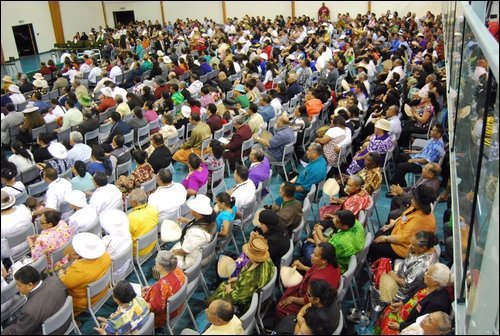News release
From:
All-of-community by all-of-government: reaching Pacific people in Aotearoa New Zealand during the COVID-19 pandemic
Julia Ioane, Teuila Percival, Winnie Laban, Ian Lambie
Key Points
Supporting Pacific communities during a pandemic and beyond needs to include the following:
* Utilise Pacific knowledge, practice and protocols.
* Prioritise the provision of food, shelter, warmth, care and planning for natural disasters.
* Education to prevent and eliminate virus spread immediately, using all forms of communication.
* Test for COVID-19.
* Partner with the community to provide robust interventions and gather data to deal with unintended outcomes of family violence, poor mental health and harm and substance abuse.
* Implement solutions that are culturally appropriate and long-lasting to ensue Pacific communities are empowered to thrive and flourish in Aotearoa New Zealand.
Summary
A response to COVID-19 for Pacific and vulnerable communities requires the provision of health-promotion messages that incorporate health inequities and social justice principles by undertaking a holistic approach that is not confined to a western definition of health needs and includes (though is not limited to) faith-based and spiritual context. An all-of-community approach responds to the recommendation that a best practice plan for COVID-19 and beyond requires transparency in the decision-making process. Community involvement is more likely to provide this transparency to build and sustain Pacific confidence and trust in government. Consonant with the Pacific collective worldview, if support for families can transition to self-sufficiency, this will result in more sustainable outcomes for communities. The successful management and elimination of a pandemic should be assessed by how well Pacific and vulnerable communities survive during such crises and beyond.



 New Zealand; Pacific
New Zealand; Pacific


